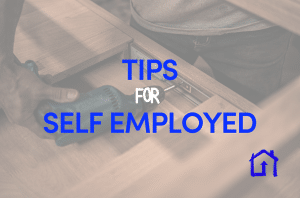What counts as self-employed?
Lenders will view you as self-employed if you own more than 20% to 25% of a business, from which you earn your main income. You could be a sole trader, company director, or contractor who has set up a limited company.
What proof do you need to provide instead of a ‘payslip’?
Because there is no employer to vouch for your wage, self-employed people are required to prove a reliable income. As a general rule, lenders will need to see proof of your income for the past two complete tax years. However it is possible to secure a mortgage on one tax year. Ultimately, you need evidence that you’ve got/had regular work that ensures a reliable future income.
To prove your income when you apply for a self-employed mortgage, you will usually need to provide:
- Latest two years tax calculations and tax year overviews or;
- Two or more years’ certified accounts (ideally by a qualified, chartered accountant)
However, lenders have the authority to ask for whatever they like! (Within reason…)
Additional docs
As well as providing evidence of your income, you may also need to provide:
- Passport
- Driving licence
- Council tax bill
- Utility bills dated within three months
- Six months worth of bank statements
- Business bank statements
Boosting your chances
Having a healthy deposit and a good credit history will also help your chances of securing a mortgage when you’re self-employed. To boost your chances, correct any mistakes on your credit report before checks, and get on the electoral roll. Avoiding old and unusual buildings helps, as lenders are less willing to lend on these too.
Contact Go2 Mortgages
If you have any questions, or want to know what budget you can start to look at properties at, speak to one of the go2mortgages advisors today on
01242 237866








